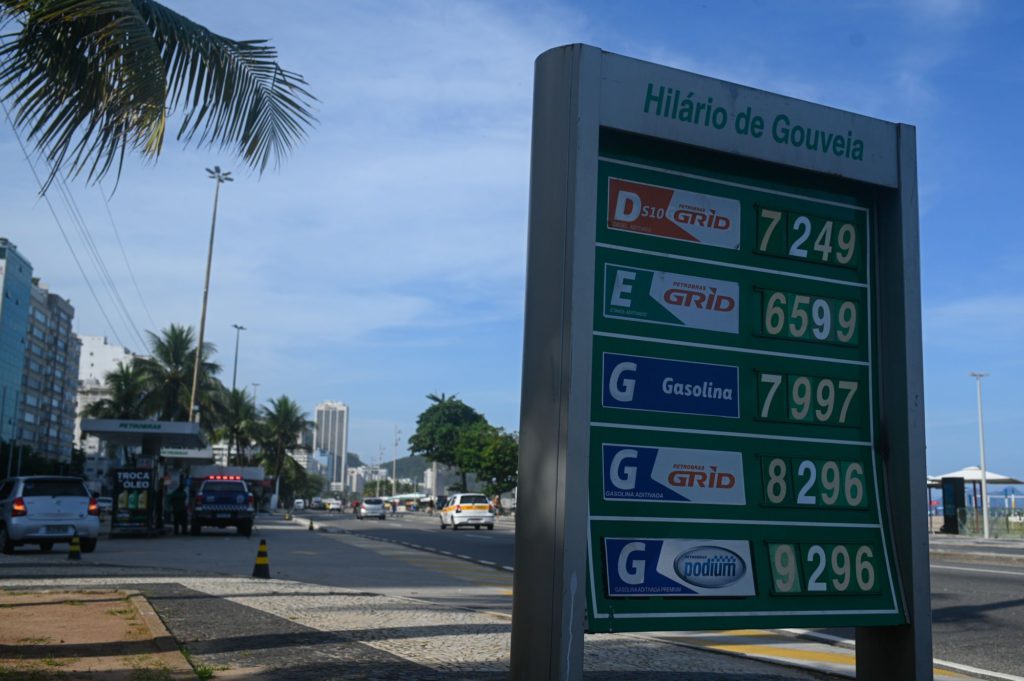(Bloomberg) — Brazilian lawmakers are debating three proposals to lower the price of fuel and other items, President Jair Bolsonaro’s latest attempt to curb inflation that’s eroding his popularity less than four months before October’s election.
The proposals reached the senate Wednesday and are expected to go to a vote next Monday as the government wants them approved before congress starts its mid-year break in July.
Fuel prices have become a headache for most global leaders in the aftermath of the pandemic and the war in Ukraine. For Bolsonaro, time is running out as he trails former President Luiz Inacio Lula da Silva in all electoral polls, with a growing number of Brazilians blaming him for soaring prices.
Read More: Brazil’s Economic Troubles Leave Lula Closer to Winning Election
Inflation would be 2.9 percentage points lower this year if the plan is fully approved, according to local asset manager XP Inc. But since most measures run out by year-end, prices would quickly rise in 2023, said Caio Megale, chief economist at XP.
Here are the three proposals and their main points:
Tax Cap
- A proposal that caps at 17% to 18% a state tax known as ICMS on fuel, electricity, public transportation and telecommunications is currently in the senate after being approved by the lower house
- This week, at the government’s request, the rapporteur of the bill amended the proposal which now also removes a number of federal taxes on ethanol and gasoline
- As a complementary bill, it needs to be approved by 41 of 81 senators and 257 of 513 lower house representatives
- The proposal allows states to reduce debt owed to the federal government in case revenue stemming from the ICMS tax charged on those items falls by more than 5%
Scrapping Taxes
- This constitutional amendment determines that the Treasury will make up for revenue losses of states that agree to completely remove until the end of the year the ICMS tax on diesel, natural gas and cooking gas, and lower to 12% the same tax on ethanol
- It establishes a limit of 29.6 billion reais ($6 billion) for that compensation, which would be paid by the Treasury in five monthly installments of up to 5.9 billion reais ($1.2 billion)
- As a constitutional amendment, it must be approved by 49 senators and 308 lawmakers in a total of four rounds of voting, two in the lower house and two in the senate
Biofuels Bill
- This constitutional amendment sets a favorable tax regime for biofuels to ensure they remain cheaper than fossil fuels
- Details will be determined in a supplementary law
- It also needs to be approved by 49 senators in two senate votes and 308 deputies in two lower house votes.
Governors are critical of the proposals, saying they will mean a total revenue loss of about 100 billion reais ($20.5 billion) a year. Bolsonaro’s administration calculates such losses at 65 billion reais ($13.3 billion).
“The goal of reducing prices won’t be achieved with a major fiscal crisis in states and municipalities,” Bahia state Governor Rui Costa told reporters after meeting with the bill’s rapporteur, Senator Fernando Bezerra.
More stories like this are available on bloomberg.com
©2022 Bloomberg L.P.











